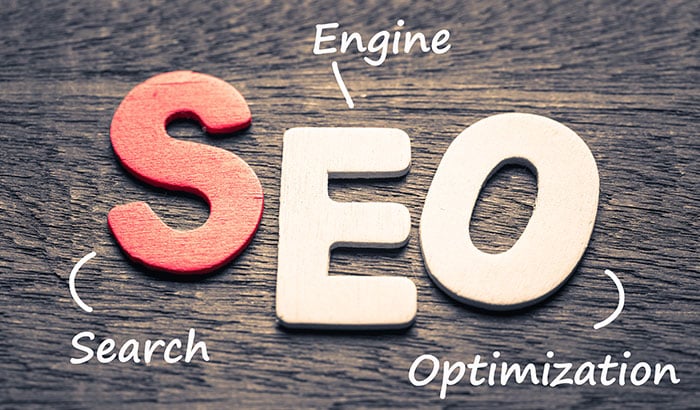Understanding and implementing SEO basics can do wonders for your website’s online presence and visibility. However, getting started can seem a little daunting if you don’t have any experience with the basics of SEO.
If you’re learning about SEO (search engine optimization) and how it can benefit your website, stick around while we discuss the basics that every business owner should know about.
By implementing what we’ll discuss below, you can improve your website’s search engine rankings, drive more traffic to your site, and increase your business’s overall success.
Table of Contents
Toggle1 – Keyword Research
Keyword research is the foundation of any successful SEO strategy. Keyword research involves identifying the words and phrases that your target audience is searching to find products like yours and making changes to your website to better align with those keywords.
Various websites will help you do keyword research. As you study what your target audience is searching for, you can more effectively create content that speaks to their needs and interests and drives traffic to your website.
2 – On-page Optimization
Once you understand keyword research, on-page optimization is the next thing to learn in SEO basics. On-page optimization involves optimizing your website’s content, structure, and HTML code to improve its visibility and relevance to search engines.
You’ll want to optimize your website to include your target keywords, all while ensuring that your site is easily crawlable by search engines and accessible to users. People often ask if they should use keywords everywhere on their site; in general, you should use them in your site’s headers and throughout the content to help your site rank for that keyword.
3 – Off-page Optimization
While on-page optimization is done on your website, off-page optimization, as the name suggests, is done entirely off-site. It refers to the practice of building links and promoting your website to boost its authority and credibility.
This is done through acquiring backlinks from other websites, guest posting on industry-related blogs, and engaging with your audience on social media.
With link building specifically, it’s important to focus on acquiring high-quality links from reputable and relevant sources rather than using black-hat techniques that can result in penalties or decreased search engine rankings.
Off-page optimization is a process that never ends, as it involves continually building relationships and promoting your website across various channels online.
4 – Local SEO
If you have a small, local business, then local search engine optimization is for you. It focuses on optimizing your website for local search results instead of larger-scale search results.
This involves ensuring that your website has consistent and accurate information across directories and listings and using location-based keywords and content to target local searchers. More specific keyword research should be done to ensure you include the right words and phrases relevant to your location.
5 – Mobile Optimization
Because more and more people are using smartphones to search for things online, ensuring your site is optimized for phones, and other small screens is just as important.
Mobile optimization involves making your website easily accessible and navigable on mobile devices, with responsive design and fast loading speeds. Ensuring that your site is optimized will help improve your search engine rankings.
6 – Site Speed
We mentioned this briefly in other points, but we can’t stress enough just how important it is to ensure your site loads quickly, as site speed is a crucial factor in both user experience and search engine rankings.
A fast-loading site is important as it can help ensure that visitors don’t quickly leave, but it’s also essential because search engines like Google consider site speed a ranking factor.
There are a few things that you can do to improve your site’s speed; you can optimize images and other media, minify code and compress files, and choose a reliable and fast web hosting provider, among other things.
7 – Meta Tags
Meta tags are HTML elements that provide information about a webpage to search engines and users. Search engines use meta tags to determine a webpage’s relevance, so ensuring that the meta tags are optimized is vital to the success of a website.
Optimizing meta tags with relevant keywords and descriptions can improve the click-through rate from search engine results pages and attract more traffic to your website. However, it’s important to remember that meta tags should accurately reflect your site’s content; stuffing the meta tags with irrelevant or spammy keywords everywhere will hurt your search engine optimization efforts.
8 – Avoid Black Hat Techniques
Black hat techniques are any techniques that try to unethically boost their search engine rankings in ways that violate the search engine’s terms of service.
This includes keyword stuffing (using keywords everywhere), cloaking (the content in the search engine is different than the actual site), and link schemes (using unnatural links), which all violate search engine guidelines and compromise the user experience.
It’s important to remember that violating the terms of service could severely hurt your website. It’s worth investing time and effort into legitimate SEO efforts; sticking with the basics of SEO will help your site and your business in the long run.
9 – Continuous Improvement
SEO is an ongoing process that requires continuous improvement and adaptation to changing search engine algorithms and user behavior. While it’s important to understand the SEO basics, you should always continue learning SEO best practices.
This involves regularly reviewing and updating your website’s content, structure, and optimization techniques to ensure it remains relevant and effective. As you continue to monitor your site and make improvements, you’ll be able to stay ahead of the competition and continuously improve your rankings in search engines.
It’s a lot of work, but try to stay up to date with the latest SEO practices and trends so you can implement them into your strategy and site.
Unlock Your Website’s Potential with Revity
If you’re ready to improve your website’s visibility and attract more visitors with the SEO basics and more, Revity is the perfect solution.
At Revity, we’re committed to boosting your website’s performance through the latest SEO trends and best practices. Contact us today, and let us take care of your marketing needs!





